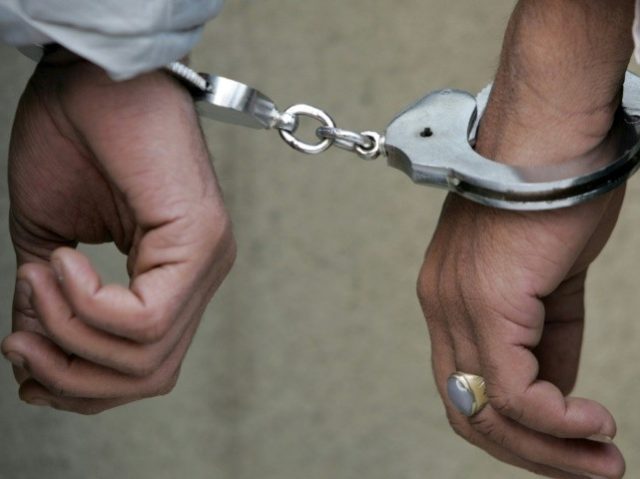According to the Iranian judiciary, around 456 people remain in jail after the crackdown against the recent popular uprising, following the release of 440 “arrested rioters.”
The judiciary counted 25 deaths during the uprising, blaming them entirely on demonstrators while claiming that government security forces fired no shots because they were “ordered not to use their weapons.”
Radio Free Europe (RFE) notes this claim of less than a thousand total detainees is vastly lower than the 3,700 reported by reformist lawmaker Mahmud Sadeghi. Reuters recalls the judiciary itself previously announced over 1,000 arrests had been made. Family and friends of imprisoned Iranians have complained their loved ones were not formally arrested or charged as required by Iranian law.
RFE also quotes an ominous statement from Hamid Shahriari, the deputy head of the Iranian judiciary, that “protest leaders should be handed the ‘maximum penalty’ under Iranian law for organizing what the Islamic Revolutionary Guards Corps has repeatedly described as acts of ‘sedition.’”
Reuters points out that the head of the judiciary is a member of the theocracy, Ayatollah Sadeq Larijani, closely allied with Supreme Leader Ayatollah Ali Khamenei. Larijani said on Monday that the United States was “crossing the line” by imposing sanctions against him and 13 other individuals and entities on Friday.
The Iranian Foreign Ministry was even more blunt, denouncing the new sanctions as a “hostile and illegal act” and vowing that “Iran’s response will be severe.”
While many of the sanctioned entities were connected to Iran’s ballistic missile program, Larijani was named for “ordering, controlling, or otherwise directing, the commission of serious human rights abuses against persons in Iran or Iranian citizens or residents.”
“As head of Iran’s Judiciary, Sadegh Amoli Larijani has administrative oversight over the carrying out of sentences in contravention of Iran’s international obligations, including the execution of individuals who were juveniles at the time of their crime and the torture or cruel, inhumane, and degrading treatment or punishment of prisoners in Iran, including amputations,” the U.S. Treasury Department charged.
Iran, with crucial support from Russia, is arguing that the new sanctions violate the nuclear deal arranged by President Barack Obama. Such tactics transform the nuclear deal into a shield against consequences for Iranian violations of human rights. The protesters were reportedly motivated in part by anger that the economic fruits of the nuclear deal have been wasted or stolen by the Iranian ruling class. Now they may discover that the deal is also a legalistic umbrella under which their authoritarian government can abuse them without fear of repercussions.
Iran reportedly lifted restrictions on the popular secure messaging app Telegram on Saturday, but restrictions are still in place on Facebook and Twitter. The block on Telegram, which is reportedly used by almost half of the Iranian population, damaged hundreds of thousands of business enterprises that rely on the app for advertising and sales.
Wired condemned Western tech companies on Friday for being complicit in the censorship of Iranian dissidents by cooperating with the government to suppress their communications, or by taking an excessively narrow view of what services they are permitted to provide under U.S. sanctions. The outlet provided examples, including Google’s AppEngine cloud service and Twitter’s two-factor authentication system, that could both help Iranians communicate without government spying or censorship if they were available.
The New York Times reported on Sunday that anger is growing in Iran over the deaths of several imprisoned demonstrators, supposedly by their own hands in jailhouse suicides.
The Times found it unusual that so many members of mainstream Iranian society are willing to “publicly repudiate the narrative of the top judicial authorities” about the alleged suicides. Apparently, Telegram began bubbling with skepticism over the official narrative of the deaths as soon as it was restored. A popular Iranian actress named Bahare Rahnama used Twitter to publicly challenge the official account of a young man’s death during the protests, and his subsequent denunciation by the judiciary as a “terrorist.”
“He was neither an outlaw, nor dangerous, nor rebellious, he didn’t deserve this, I have no doubt,” she declared. “He had simple but big wishes for himself: like making his mother happy! Why should he be killed?”
She later deleted some of her tweets after the regional governor’s office told her “not to spread false rumors,” but she left some of the postings that offered photographic proof she personally knew the victim, 24-year-old Iranian-Kurdish street vendor Saru Ghahremani.

COMMENTS
Please let us know if you're having issues with commenting.